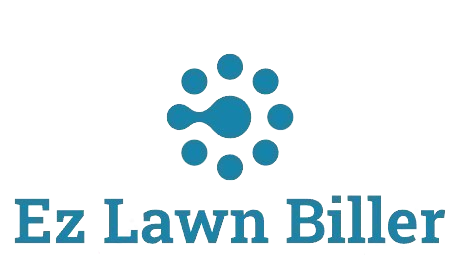The Ultimate Guide to Stay Compliant for Lawn Services
In the competitive landscape of lawn care services, compliance isn’t just a legal necessity; it’s a cornerstone of your business’s reputation and sustainability. Ensuring that your lawn service company adheres to regulations not only protects you from potential fines but also strengthens your relationship with your customers. This comprehensive guide will explore the various compliance aspects that lawn service businesses need to consider, including licensing, environmental regulations, employee training, and effective billing practices. With practical tips and insights, this post aims to equip you with the necessary knowledge to navigate the complexities of compliance successfully.
When it comes to the lawn care industry, staying compliant is imperative. In many states, lawn care professionals must adhere to specific licensing requirements to operate legally. These licenses can include chemical applicator certifications and business licenses, which vary by state and locality. Obtaining the necessary licenses ensures that you are legally permitted to apply fertilizers, pesticides, or herbicides on client properties, which is crucial for maintaining the safety and health of both your customers and the environment.
Moreover, following local regulations regarding lawn care services can prevent potential legal issues. For instance, some locations have restrictions on noise levels during certain hours, which is particularly relevant for companies that use gas-powered equipment. Therefore, understanding local laws and respecting community standards can help maintain a positive reputation and customer satisfaction.
Understanding Licensing Requirements
The first step in ensuring compliance for your lawn service business is understanding the licensing requirements in your area. Each state has its own set of regulations governing lawn care services, often requiring operators to obtain specific licenses to apply chemicals or operate heavy machinery. To start, check with your local agricultural department or environmental agency for the appropriate licensing information. They often have resources available to help you navigate the process.
For example, many states require lawn care operators to pass an examination that tests their knowledge of safe chemical handling and application. This certification not only legitimizes your business but also instills confidence in your customers, knowing that you are qualified to handle potentially hazardous materials. Failing to secure the proper licenses can lead to hefty fines and may even result in the termination of your business operations.
Environmental Regulations and Compliance
In addition to licensing, lawn service businesses must also be aware of various environmental regulations. These rules are designed to protect natural resources from the harmful effects of pesticides and fertilizers. For instance, many states impose restrictions on when and how chemicals can be applied, particularly near water sources like lakes and rivers. Understanding these regulations is essential for avoiding penalties and ensuring the safety of your services.
Moreover, using eco-friendly products and practices can not only help you comply with environmental regulations but also appeal to a growing segment of environmentally conscious consumers. Consider offering organic lawn care options or implementing sustainable practices such as composting clippings or using electric equipment. These choices not only enhance your company’s image but also contribute positively to the environment.
Employee Training and Safety Protocols
For a lawn service company, having well-trained employees is critical for compliance and safety. Regular training sessions should cover all aspects of lawn care, including safe equipment operation, chemical handling, and first aid responses in emergencies. Establishing a culture of safety within your organization creates a more secure work environment and minimizes the risk of accidents.
Furthermore, maintaining comprehensive records of employee training and safety protocols can be beneficial. In the event of an incident, having documentation can protect your business and demonstrate your commitment to compliance. Regularly reviewing and updating training materials ensures that your team is always informed of the latest regulations and best practices.
Best Practices for Billing and Record Keeping
While compliance with regulations is crucial, effective billing practices also play a significant role in your business’s success. Utilizing a reliable lawn billing software can streamline your invoicing process, reducing errors and ensuring timely payments. With features like automated billing and customizable invoices, you can maintain professionalism and enhance client satisfaction.
Moreover, good record-keeping practices are essential for compliance. Keeping detailed records of services rendered, chemical applications, and client communications can help protect your business in case of audits or disputes. Implementing a lawn service app can assist in tracking service history and managing client details efficiently, ensuring that you stay organized and compliant.
Technology Integration for Compliance Management
In today’s digital age, leveraging technology can significantly aid in maintaining compliance. Many lawn service companies have begun adopting cloud-based platforms like [Lawn Biller Software](https://ezlawnbiller.com/) that offer comprehensive solutions for billing, client management, and service tracking. These platforms not only simplify administrative tasks but also help in documenting compliance-related activities seamlessly.
For instance, some software solutions can alert users of upcoming licensing renewals or necessary training sessions, ensuring that you remain compliant without requiring constant manual oversight. Additionally, technology can facilitate better communication with clients, allowing you to send reminders about service schedules or updates on regulations that may affect them.
Understanding Local Market Trends and Regulations
Every region has unique regulations and environmental concerns that can impact lawn services. For example, if you are operating in areas like Los Angeles, California, where water conservation is a major issue, you might need to focus on drought-resistant landscaping and irrigation services. Conversely, in regions with heavy rainfall, it’s essential to be mindful of runoff and its effect on local waterways.
By staying informed about local market trends and regulations, you can tailor your services accordingly and maintain compliance. Consider joining local trade associations or attending industry seminars to stay updated on best practices and changes in the law that could affect your business.
Leveraging Customer Relationships for Compliance
Building strong relationships with your clients not only enhances customer loyalty but can also assist in maintaining compliance. When clients trust your expertise and integrity, they are more likely to adhere to recommendations regarding lawn care practices and regulations. Regular communication about the importance of compliance can reinforce this trust and encourage responsible service usage.
For example, when you engage clients about the proper care of chemicals and fertilizers, you not only educate them but also position yourself as a knowledgeable leader in the industry. This can lead to increased referrals and a positive reputation in your local community, ultimately benefiting your business.
Conclusion
In conclusion, staying compliant in the lawn service industry is a multifaceted endeavor that involves understanding licensing requirements, adhering to environmental regulations, ensuring employee training, and maintaining effective billing practices. By implementing the strategies discussed in this guide, you can protect your business from legal issues and foster a reputation as a responsible service provider.
As you navigate the complexities of compliance, remember that leveraging technology, maintaining open communication with clients, and staying informed about local regulations can significantly enhance your business’s sustainability. For a comprehensive and user-friendly solution, consider utilizing [Lawn Biller Software](https://ezlawnbiller.com/) to streamline your billing and compliance processes, allowing you to focus on delivering exceptional lawn care services.
Ultimately, your commitment to compliance reflects your dedication to quality and professionalism in the lawn care industry. By prioritizing these aspects, you can build a thriving business that stands the test of time.




